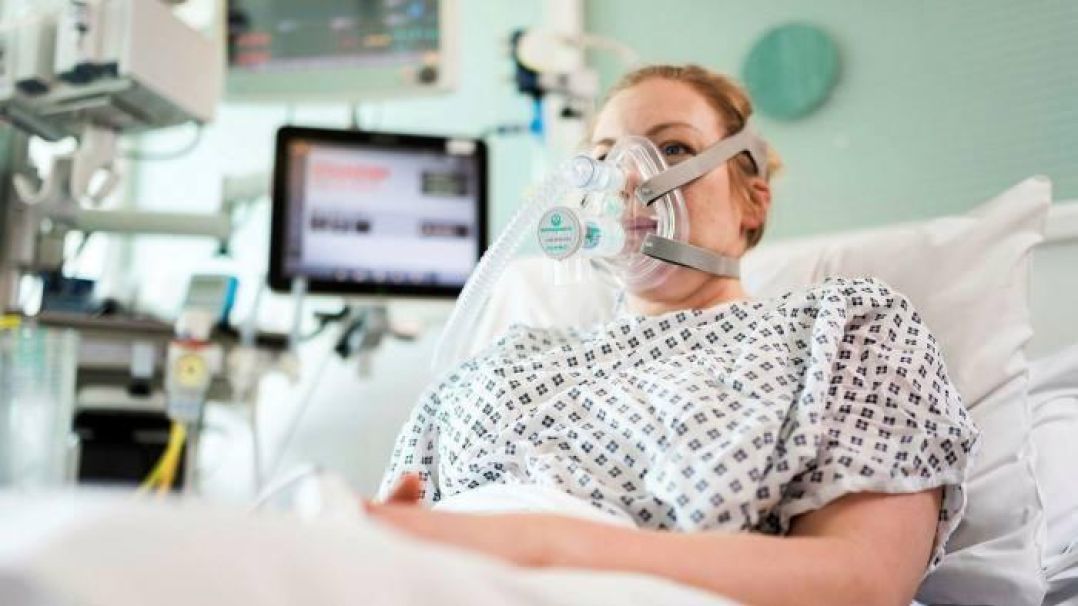Most Common Medical Malpractice Claims
Servca breakdown common UK Medical Malpractice Claims and how they occur.
Blog
June 11, 2020

An introduction to Medical Malpractice Claims
In the world of medical healthcare, there is plenty of room for things to go wrong – and while many professionals try their absolute best in maintaining the highest standard of care possible for their patients, mistakes can happen.Medical Negligence Claims arise out of negative medical experiences, offering patients the opportunity to become protected and receive justice in the form of legal compensation for having experienced the mis-treatment.On the flip side, Medical Malpractice Insurance was developed to protect the medical professional in the event of a claim. Regardless of the technical details behind the claim, Medical Malpractice (also known as Medical Indemnity) was designed to limit the damage a claim made on the medical professional, and protect them from a variety reasons for negligence.
What is Medical Negligence?
Defining Medical Negligence
It is important to understand what Medical Negligence actually means:Medical Negligence – is care below the standard level of care provided by a medical professional to a patient, which results, causes or contributes to an injury, or worsens the effects of an existing injury / condition, negatively impacting physical health and/or causing mental anguish. While Medical Negligence may sound like it’s a specific type of claim, as you can see it’s actual definition means that you can have a number of supporting reasons why a patient may claim medical negligence again a professional.
Why Patients File Claims
When patients (or relatives of said patients) submit a medical malpractice claim and win the claim in court, they are able to hold the healthcare providers who treated them wrongfully accountable, and receive financial and lawful compensation in return.Patient who feel they have experienced a form of negligence are highly likely to file a negligence claim against a practitioner, even if they are mistaken and are pointing their fingers at the wrong people.This is why it’s important to ensure protection and better understanding of all the different types of common claims made against practitioners, regardless of which medical profession you personally practice.
5 Common Medical Malpractice Claims
1. Medical Misdiagnosis
Where a medical professional has incorrectly diagnosed a condition that leads to unnecessary or prolonged suffering.There are two types of Medical Misdiagnosis:Where a practitioner misses a condition and the patient continues un-diagnosed.Where a practitioner makes a diagnosis, but it is incorrect.If a patient is misdiagnosed or left incorrectly un-diagnosed, the patient can face severe health effects and in some case, life threatening risks.Medical Misdiagnosis is one of the leading causes of medical malpractice lawsuits and are classed as very technical claims. This means in court these cases require very significant and specific pieces of evidence of how and why the medical professionals failed to directly diagnose the patient, where the medical professional should be able to, and is expected, to correctly diagnose the patient.
2. Surgical Negligence
One of the most common forms of medical negligence occurs during surgery and among these surgical errors, extreme form of surgical negligence is labelled as “Never events”.What’s a ‘Never event’? A term coined by the Government, where a surgical error is so serious, that it should never happen again.Here are a few possible surgical errors:The wrong operation was performed.The wrong body was operated on.Foreign objects left behind in the body after surgery.Infection has occurred due to poor hygiene.Scaring or Disfigurement caused via surgical treatment.Organs being perforated (where small surgical holes have accidently or maliciously made in the organs).Organ or Nerve Damage caused by Surgery.Surgery where no surgery was initially needed.Errors and issues caused by anaesthesia
3. Prescription & Medication Errors
Everyone has had to take some form of medication at one point in their lives and it usually means that you need to take it to be better.However sometimes errors are made and some medical professions incorrectly prescribe medication to patients where the medication is actually harmful to their condition, incorrect for their condition, or is not required as it has been prescribed per misdiagnosis.Taking the wrong medical can lead to various high risk health issues such as extreme allergic reactions, digestive issues, and psychological ailments, damage to the brain, heart or nervous system and in some extremely serious cases death as well.Some examples of common malpractice claims via prescribing incorrect medicine:Incorrect medication prescribed.Incorrect dosage prescribed.Incorrect period of medical recommended and/or prescribed.Mixing medications that should not be mixed.Prescribing medication where medical history has shown patient is severely allergic to said medication or similar medications.Prescribing medication where patient doesn’t actually require medication.
4. Negligent Medical Advice
Patients often receive medical advice during appointments and consultations. For example, informing patients of the risks that come with a particular procedure or informing patients about alternative treatments and methods available to them.This is so that patients can make informed decisions, about procedures, medication, alternative methods, to their medical professionals (and therefore medical professionals can receive informed consent).If as a medical professions, you fail you provide the correct/appropriate advice; tell the patient about the various options available to them as alternative methods, inform them of the risks to health that comes with procedures/surgical treatment/operations, and the patient goes through with medication or a procedure based on your advice and something goes wrong, you are likely to face a claim for negligence medical advice.Failure to advise a patient properly or clearly can result in misunderstanding of these serious medications and/or procedures that therefore lead to serious medical mistakes performed off mis-informed information.In the event of a Medical Malpractice lawsuit for negligent advice, one more take into account the varying degrees of consent within the healthcare environment, alongside requirements and actions legally that must be taken to ensure the patient understands the risks and outcomes of a carried out medical procedure.
5. Pregnancy & Birth Injuries
Woman who have suffered injury or negligent treatment during pregnancy or the birthing experience make around 20% of all Medical Malpractice cases.Medical Malpractice claims revolving around birthing and pregnancy difficulties are often emotionally difficult cases due to the sensitive nature surrounding childbirth.A birth related claim can arise:During the pregnancyBefore the birthAfter the birthAs it is a sensitive topic, with more than enough room for errors to occur during pregnancy and birth, there are a variety of reasons why a patient may make a claim:Failure to diagnose or identify maternal conditionsFailure to diagnose or identify potential complicationsFailure to monitor maternal and fetal healthError in labour inducingError in labour inducing medicationError in C-SectionError in vacuums or forceps producing sensitive traumaMedical Error causing Brain Damage and/or oxygen deprivationAll of these issues cause high risk to a mother and her un-born/born child, often resulting in having lifelong or fatal consequences were a mother, a child, or both die.Some medical conditions or life-threatening birth injuries include injuries suffered by the mother, baby or both. Failure to notice developing medical conditions induced by pregnancy/birth and/or therefore failure to manage these conditions puts great risk of a claim on a medical professional.As previously said these conditions can arise during various stages of the birthing and pregnancy process. The following conditions are examples of handful of birth injuries that result in claims made against medical professionals:Maternal Diabetes (during pregnancy)Pre-Eclampsia (during pregnancy)Uterine Rupture (during pregnancy)Failed vasectomy (during pregnancy)Failed sterilisation (during pregnancy)Placental Abruption (during pregnancy)Failure to warn parents I child will be born with a disability (during pregnancy)Second or Third Degree Tears (during labour)Injury via Forcep Delivery (during labour)Cerebral Palsy (during labour)Episiotomy (during labour)Congenital Hip Dysplasia (after birth)
Protecting Against Medical Negligence Claims
Now that we’ve had a look at five of the most common medical malpractice claims, the question now is, how do medical professionals protect themselves from receiving a claim, and if a claim has been made, protect themselves from the effects of a claim?
Defining Medical Malpractice Insurance
Medical Malpractice Insurance – Insurance that covers medical professionals in the event they receive a medical negligence claim.It is also a legal requirement that if you practice any medical services, to have medical indemnity insurance, when working within the UK. Practicing without this insurance is illegal.
What will Medical Malpractice Insurance Protect Against?
Whether or not you feel the claim is genuine or has merit, as a regulated medical professional, you must defend against this claim and provide evidence where required.So what are some of the basic aspects Medical Malpractice Insurance protects against?Premature DischargeMental Harm of PatientsSexual HarassmentMisdiagnosisPatient InjuryPatient Referral Delays
What if I do work that a basic Medical Malpractice Policy does not cover?
Dependent on which insurance broker and provider you decide to work with, policy add-ons and extensions will be included dependent on:The world you are providing.What the insurance provider can and cannot cover.The risk of work arising to a claim.Different brokers and providers offer different policies. However, if you require add-on coverage for some medical work on top of your medical negligent policy, you will need to talk to your provider and sort it out, as it is a legal requirement even if you have medical negligence covering aspects of your medical services.You must be fully protected for all forms of medical work you conduct.
Who are Servca Group?
Servca Group is a well-seasoned medical malpractice specialist insurance broker. We have been providing insurance for a variety of medical professionals for many years, even placing individuals who have struggled to receive continued cover from their current provider and other big providers within the insurance sector.Servca Group are also a Lloyd's of London brokerage, meaning with have access to the largest insurance market in London (the Lloyd's London Market) and all their syndicates, ensuring that the policies and quotations we offer medical professionals are at a ‘Grade A’ Standard.



